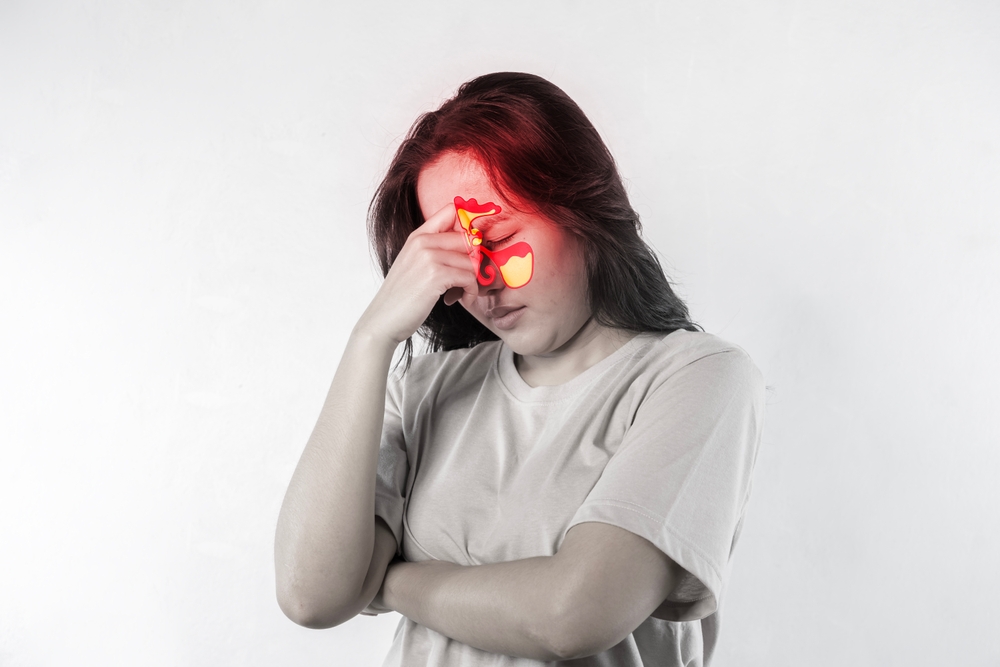While others celebrate the change in weather and the arrival of sunny days, you find yourself dreading the air quality reports due to the persistent sneezing and watery eyes triggered by your seasonal allergies.
Fortunately, there are several methods to alleviate seasonal allergies, but the key is identifying the one that best suits your symptoms and individual needs.
Avoid your triggers
When it comes to seasonal allergies, your immune system can sometimes misidentify a specific trigger as a threat, leading to allergic reactions. For instance, a speck of pollen may provoke the same immune response as a virus or bacteria, causing discomfort like sneezing and watery eyes.
Avoiding triggers can be an effective way to manage seasonal allergies. While triggers vary, most people with seasonal allergies are affected by pollen from various plants, along with the occasional fungal spore.
Here are some tips for avoiding pollen and managing seasonal allergies:
- Monitor pollen counts in your area and use an app that notifies you when allergen levels are high.
- Be aware of when your specific allergens tend to be most prevalent.
- Stay indoors during peak pollen times, which are often early mornings and evenings. Keep your windows closed during these periods.
- Change clothes after being outdoors to prevent pollen from clinging to your clothes.
- Consider taking a quick shower to remove pollen from your body and hair.
- Check the weather forecast and avoid windy, dry conditions. Instead, go outside after rainfall when pollen has settled.
- Refrain from mowing the lawn or gardening during peak allergy months.
- Undergo allergy testing to identify your specific triggers and create a personalized treatment plan.
By following these tips and understanding your allergy triggers, you can minimize the impact of seasonal allergies on your life.
Indoor air
Living in homes that are well-insulated but not completely sealed allows for air flow, which can bring in allergens like pollen. Keeping the air in your home clean is crucial for managing seasonal allergies.
Here are some steps you can take to keep your indoor air clean and reduce allergy symptoms:
- Use a HEPA filter in your home’s HVAC system or a vacuum cleaner with a HEPA filter to trap allergens.
- Run your air conditioning system whenever possible to filter out allergens and maintain indoor air quality.
- Have your windows shut during high pollen periods to prevent allergens in your home.
- Use high-efficiency air filters to capture allergens and improve air quality.
By taking these precautions, you can minimize your exposure to allergens and reduce seasonal allergy symptoms.
Over-the-counter treatments
Over-the-counter remedies are a common go-to for many individuals dealing with seasonal allergies. These medications, available without a prescription, should be used with caution and following the manufacturer’s instructions.
Some popular over-the-counter treatments include:
- Decongestants: These medications are designed to relieve nasal congestion. While there are various brands, the active ingredient may differ. Decongestants can offer short-term relief for congestion and help prevent sinus infections. However, long-term use is not recommended due to potential health risks. If your symptoms include a runny nose, other medications may be more suitable.
- Oral antihistamines: These medications work by counteracting the body’s allergic response and are effective for typical and seasonal allergies. However, they may cause side effects like drowsiness, headaches, and dry mouth.
- Nasal sprays: Nasal sprays can be effective in reducing allergy symptoms when used before exposure to triggers. They are particularly useful for outdoor activities or yard work.
- Nasal irrigation: Saline solutions for nasal irrigation can thin mucus and flush out pollen trapped in the nasal passages, providing relief for some allergy sufferers.
It’s important to consult with a healthcare professional before using over-the-counter medications, especially if you have other health conditions or are taking other medications.
When you need to see a doctor for treating seasonal allergies
If over-the-counter remedies aren’t providing the relief you need, consider making an appointment with an allergist to explore prescription medications and treatments. One commonly prescribed treatment is allergy shots, also known as immunotherapy. After identifying your specific allergens, your allergist can create a treatment plan to gradually desensitize your immune system to those triggers.
Allergy shots can offer long-lasting relief from seasonal allergy symptoms, making them a popular choice for those affected by severe and prolonged allergy seasons. These shots can effectively reduce symptoms over time, potentially leading to permanent relief.
It’s important to remember that effective treatment for seasonal allergies is available. If you’re struggling with your allergies, don’t hesitate to discuss your options with a healthcare professional.
Find an ENT specialist near you to discuss your symptoms and find a personalized treatment plan.



